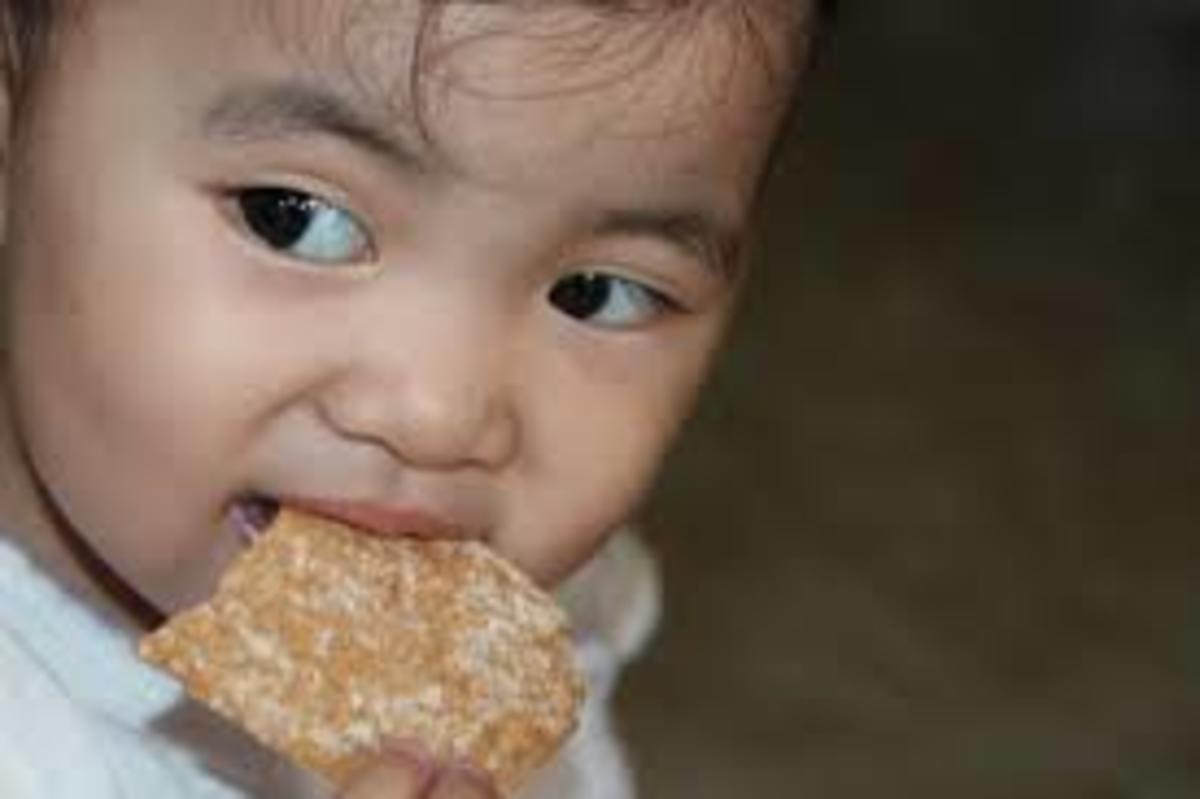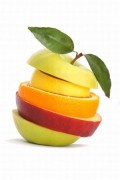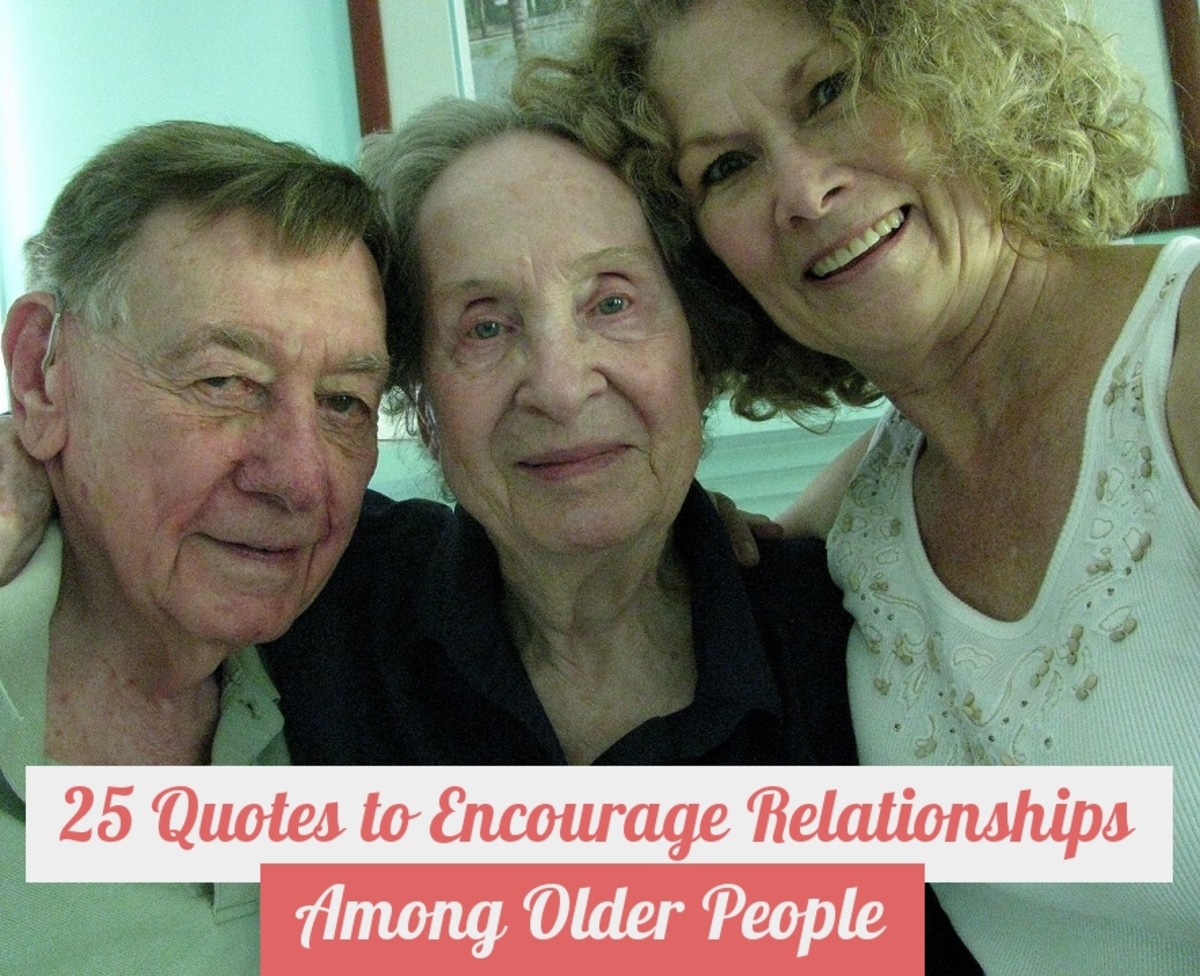Tips on Weight Loss: You Don't Have to Clean Your Plate!
Cleaning Your Plate and Your Weight
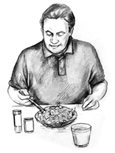
Our Eating Behavior and Weight Control
Our eating behavior and how much we eat is affected by many external factors such as packaging,portion size, how much attention we are paying to what we are eating, and even the shape of the plate and the plate size.
The truth is, if people eat when they are hungry, and stopped when they are full, weight would not be an issue. But people are easily influenced by culture, envrionmental factors, the food industry, boredom, and psychological factors that encourage overeating. These external factors affect eating behaviors and interfere with normal consumption of food, and they disrupt the ability to be vigilant about how much we are eating.
By ignoring our own body cues, we are letting outside forces dictate how much food we put into our body., which makes us underestimate what we eat by as much as 20%, some studies have observed. People are unconsciously influenced by package size and food choice. So what we see on the plate dictates what we eat, more than we give it credit.
Parents Influence Our Behavior Towards Food Even Into Adulthood
Additionally , parents who instill the idea that a child must clean their plate is teaching them not to rely on their own body cues, but the visual idea that there should be nothing left on the plate.
Food is designed to nuture us, but it has an emotional component to it. How much we put on our plate, and how much we eat, is not always what our bodies ideally need.
In a 2005 study done by Cornell University, about overeating and children, researchers concluded that the amount of food put in front a child is the most important factor contributing to how much children eat. Using 17 preschool age children, they were given lunch and 2 snacks at a day care center. The parents kept track of what the kids had for dinner. The children were always given more food than they ate.
Consistently the researchers were able to predict how much the children would eat, based on how much food was put on their plate. Looking at these results, a co-author of the published study and a professor of psychology, Dr. David A. Levitsky, believes parents play a vital role in curbing their child’s obesity habits, by offering smaller portions to their children.
Cleaning Our Plate and Conditioning
Cleaning your plate comes from conditioning. As children, kids are taught there are starving children in Africa to force or guilt more food intake.
As adults, people do not break these habits, and are not paying attention to the quantity of their food intake. People are not paying attention to the signals their body are giving them about fullness. Instead, they are taking the visual clues of a clean plate, no matter how much food is put in front of them.
In other studies, it was found that parents who encouraged their children to clean their plates will ask for larger portions whenever and wherever they eat. This leaves both children and adults with the potential for overeating.
At a study done at New Mexico State University, and an assistant professor in France, at the University of Grenoble, they studied 63 children whose parents were more insistent that their 4 year olds, clean their plate. The children, especially the boys, were more likely to want a larger portion of food. They found these parents may be using excess control on their children. These children, may also have little control over their food and these parents may be inhibiting the development of self regulation in these children.
The Habit of Cleaning Our Plate and Weight Control
One of the biggest problems with weight control, is paying attention to what we are eating and how full we are getting. If you pay attention, your body will tell you as you start to feel full.
Logically it does not make sense to pay attention to a clean plate as the cue when to stop eating. The alternative is to make parents aware that by providing moderate food portions may help their children to determine their own fullness levels, and giving them the choice of whether or not they want more.
It is important in the big picture of weight control, and self discipline, to let kids choose how much they want to eat, even if they leave food on the plate.
If we condition our children to eat based on cleaning their plate, as adults, we will eat without thinking. Often cleaning the plate, comes from habit, and the thinking that we don’t want to waste good food.
But if you put the cost of the food left into monetary perspective, you are probably talking about very little waste of money, compared to what it will cost to buy new clothes, because you are not fitting into the old clothes, or the cost of the excess use of toilet paper, and of course the cost of medical expenses, the excess weight will cost you. So leaving food on the plate is not only healthy for you, in the long run, it is cheaper for you.
People also feel a sense of satisfaction from completing a task of finishing food that is put in front of them. Sometimes people are distracted and not focusing on how their bodies feel, but instead, what is in their plate.
Cleaning Your Plate and Your Choices
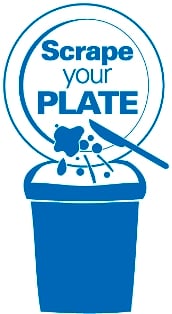
Honor Your Body
Instead of cleaning your plate, honor your body. Listen to the cues of fullness. Leaving food on the plate is a healthier attitude. It actually will give you more contro over your life and an easier way to manage your weight. By cleaning the plate until it is empty, and letting the plate be your guide, you actually are allowing this inanimate object control you.
There are several healthier ways to approach eating:
- recognize when you start to feel full
- eat more slowly
- stop before you feel sick or overstuffed
- take more pleasure from eating
It is hard to break old habits , but you will be taking charge of your own choices. See what it feels like if you leave food on the plate. Did you really need it, miss it? If you do this day after day, meal after meal, you will lose weight, and dieting won’t be a struggle. Of course you have to limit your intake of sugary and high carbohydrate foods too, but even these you can have as long as it is not to excess and you listen to your body when it is time to eat and time to stop eating, instead of your brain.
Tips for Thinking Instead of Just Cleaning Your Plate
What is one to do?
- Basically, weight loss will happen easier when people think before they eat.
- Allow yourself the power to leave food on the plate.
- The first few bites of food are tastiest. As the food loses its luster, it may, the first cue the body is getting full and may be time to stop eating.
- Use a smaller plate
- when you are eatin gout, ask for a container to pack up the leftovers as soon as the food arrives at the table. Pack up the food, leaving only some on your plate .
- use logic instead of habit, don’t just finish the food just because the food is in front of you
- because it tastes good
- because your parents taught you
- because you paid for it
- the satisfaction of finishing the food on the plate
- fear of not enough
- something deeply emotional
Who Is Really in Control of What You Eat
If we ate just for hunger, waistlines would be smaller, but many people do not hae a healthy relationship with food. That is the reason dieting may not work. Losing weight begins in our head, with a determination and self obligation to eat nutritiously, properly, and proportionately. Sometimes, the easiest way to lose weight, is to start with our plate size, and with leaving some food on the plate. Our appetite is influenced by the sensory qualities we see, smell, and think about.
The holidays make it especially easy to overeat, because of what we put on our plate. Eating in moderation is helpful to weight control. Cleaning your plate, may not benefit your waistline, it just, well, finishes food on the plate. What you eat, and how much you eat, is a personal decision. If you choose to finish food on the plate, is it really your own decision, or something that was programmed into you as a child? If you are cleaning your plate, is it really your decision, or are you doing something that someone else told you to do, but didn’t know how you really felt when you were full?
Who is really in control here?
It takes work to change our eating habits. It takes work to become acutely aware of what we are doing, and the reasons we do it. It takes work to get over emotional eating, but it can be done. It just takes a conscious effort, a desire for something better than just food, a commitment to do what is best for yourself. Losing weight, not overeating, and eating the best foods for your body, is something you and your brain can decide together to do. When your brain is ready, cleaning your plate won’t seem like the only eating choice you have.
Weight Gain Versus Weight Management
Weight gain can happen because:
- you eat too fast
- you clean your plate
- you eat when you are not hungry
- you eat mindlessly
- you eat sweets and carbs in excess
- you eat food just because it is there
Weight management can happen because:
- you listen to cues from your body
- you eat when you are hungry, but not starving
- you appreciate what you eat
- you include fruits and vegetables in your meals
- you snack less
- you get a healthy relationship to food
- when you are bored, you do something else besides eating
- eat slower
- eat in lesser quantity
- stop when you feel full
While losing weight might be a battle, you can win because you make the best choices for yourself. Losing weight is about feeling better today. Dieting does not have to be about deprivation.
Cleaning your plate, is not about anything, but what your stomach tells you. Your mind can help you gain weight, if you eat because your brain tells you, and your mind can help you lose weight, because you have a healthier relationship with what you put into your body.
Cleaning your plate doesn't have to be a mindless habit. Leaving food behind, is choice that is good for your behind.


